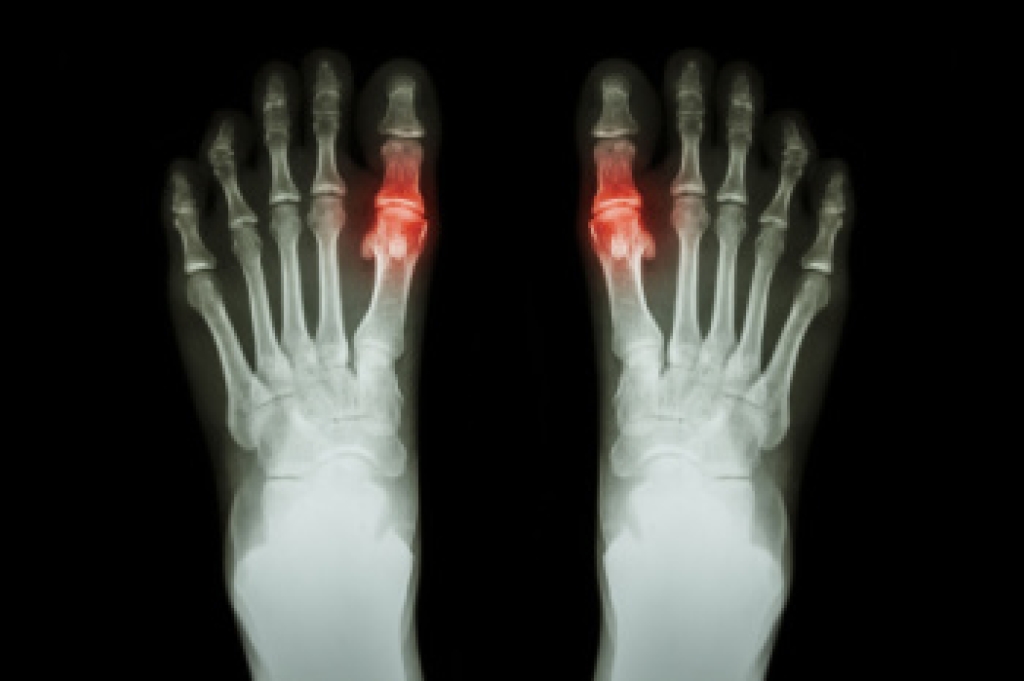Connect With Us
Blog
Blog
How Children Learn to Walk With Confidence

Children do not move like small adults. Early walking patterns evolve as bones lengthen, muscles strengthen, and coordination improves. During growth spurts, legs may seem awkward, feet may turn in or out, and balance may temporarily change. These shifts are usually part of healthy growth, but some patterns persist longer than expected. Frequent tripping, uneven shoe wear, toe walking, or complaints or signaling of leg fatigue can show that movement mechanics need attention. Sports, footwear choices, and surface demands also influence how forces travel through the feet and ankles. Addressing concerns early can support comfort, confidence, and efficient movement as children mature. Early guidance helps prevent strain and injury. If a child shows ongoing walking difficulties, pain, or unusual shoe wear patterns, it is suggested that you see a podiatrist for a proper diagnosis and appropriate treatment.
Making sure that your children maintain good foot health is very important as they grow. If you have any questions, contact Elie C. Daniel, DPM of Illinois. Our doctor can provide the care you need to keep you pain-free and on your feet.
Keeping Children's Feet Healthy
Having healthy feet during childhood can help prevent medical problems later in life, namely in the back and legs. As children grow, their feet require different types of care. Here are some things to consider...
Although babies do not walk yet, it is still very important to take care of their feet.
Avoid putting tight shoes or socks on his or her feet.
Allow the baby to stretch and kick his or her feet to feel comfortable.
As a toddler, kids are now on the move and begin to develop differently. At this age, toddlers are getting a feel for walking, so don’t be alarmed if your toddler is unsteady or ‘walks funny’.
As your child gets older, it is important to teach them how to take care of their feet.
Show them proper hygiene to prevent infections such as fungus.
Be watchful for any pain or injury.
Have all injuries checked by a doctor as soon as possible.
Comfortable, protective shoes should always be worn, especially at play.
If you have any questions, please feel free to contact our offices located in Princeton, Peru, and Mendota, IL . We offer the newest diagnostic and treatment technologies for all your foot care needs.
Gout Is an Inflammatory Arthritis That Affects the Feet

Gout is an inflammatory arthritis caused by the buildup of uric acid crystals within the joints, leading to intense inflammation and discomfort. Symptoms often appear suddenly, and may include swelling, redness, warmth, and severe pain that frequently affects the big toe, but can involve other joints of the foot and ankle. These attacks may occur without warning and can limit walking and daily activity. Causes include elevated uric acid levels in the blood, which may be influenced by diet, genetics, and certain medical conditions. Risk factors include obesity, family history, medications, and metabolic disorders. A podiatrist can diagnose gout through a clinical evaluation, manage painful flare-ups, and develop a treatment plan to protect joint health. If you have symptoms of gout, it is strongly suggested that you are under the care of a podiatrist who can offer you effective relief and management techniques.
Gout is a painful condition that can be treated. If you are seeking treatment, contact Elie C. Daniel, DPM from Illinois. Our doctor will treat your foot and ankle needs.
What Is Gout?
Gout is a form of arthritis that is characterized by sudden, severe attacks of pain, redness, and tenderness in the joints. The condition usually affects the joint at the base of the big toe. A gout attack can occur at any random time, such as the middle of the night while you are asleep.
Symptoms
- Intense Joint Pain - Usually around the large joint of your big toe, and it most severe within the first four to twelve hours
- Lingering Discomfort - Joint discomfort may last from a few days to a few weeks
- Inflammation and Redness -Affected joints may become swollen, tender, warm and red
- Limited Range of Motion - May experience a decrease in joint mobility
Risk Factors
- Genetics - If family members have gout, you’re more likely to have it
- Medications - Diuretic medications can raise uric acid levels
- Gender/Age - Gout is more common in men until the age of 60. It is believed that estrogen protects women until that point
- Diet - Eating red meat and shellfish increases your risk
- Alcohol - Having more than two alcoholic drinks per day increases your risk
- Obesity - Obese people are at a higher risk for gout
Prior to visiting your podiatrist to receive treatment for gout, there are a few things you should do beforehand. If you have gout you should write down your symptoms--including when they started and how often you experience them, important medical information you may have, and any questions you may have. Writing down these three things will help your podiatrist in assessing your specific situation so that he or she may provide the best route of treatment for you.
If you have any questions, please feel free to contact our offices located in Princeton, Peru, and Mendota, IL . We offer the newest diagnostic and treatment technologies for all your foot care needs.
Clubfoot Causes and Care

Clubfoot is a common birth defect in which a baby is born with one or both feet turned inward and downward due to abnormal development of muscles, ligaments, and bones. The exact causes are not always known, but may include genetic factors and differences in fetal development during pregnancy. The Ponseti treatment method is the most widely used approach for care and involves gentle stretching, casting, and bracing to gradually correct foot position and function. A podiatrist plays an important role in monitoring foot development, guiding treatment, and supporting long-term mobility and comfort. Early care leads to the best outcomes. If your child has been born with clubfoot, it is strongly suggested that you have a podiatrist on your healthcare team who can provide effective treatment and compassionate guidance.
Congenital foot problems require immediate attention to avoid future complications. If you have any concerns, contact Elie C. Daniel, DPM of Illinois. Our doctor can provide the care you need to keep you pain-free and on your feet.
Congenital foot problems are deformities affecting the feet, toes, and/or ankles that children are born with. Some of these conditions have a genetic cause while others just happen. Some specific foot ailments that children may be born with include clubfeet, polydactyly/macrodactyly, and cleft foot. There are several other foot anomalies that can occur congenitally. What all of these conditions have in common is that a child may experience difficulty walking or performing everyday activities, as well as trouble finding footwear that fits their foot deformity. Some of these conditions are more serious than others. Consulting with a podiatrist as early as possible will help in properly diagnosing a child’s foot condition while getting the necessary treatment underway.
What are Causes of Congenital Foot Problem?
A congenital foot problem is one that happens to a child at birth. These conditions can be caused by a genetic predisposition, developmental or positional abnormalities during gestation, or with no known cause.
What are Symptoms of Congenital Foot Problems?
Symptoms vary by the congenital condition. Symptoms may consist of the following:
- Clubfoot, where tendons are shortened, bones are shaped differently, and the Achilles tendon is tight, causing the foot to point in and down. It is also possible for the soles of the feet to face each other.
- Polydactyly, which usually consists of a nubbin or small lump of tissue without a bone, a toe that is partially formed but has no joints, or an extra toe.
- Vertical talus, where the talus bone forms in the wrong position causing other bones in the foot to line up improperly, the front of the foot to point up, and the bottom of the foot to stiffen, with no arch, and to curve out.
- Tarsal coalition, when there is an abnormal connection of two or more bones in the foot leading to severe, rigid flatfoot.
- Cleft foot, where there are missing toes, a V-shaped cleft, and other anatomical differences.
- Macrodactyly, when the toes are abnormally large due to overgrowth of the underlying bone or soft tissue.
Treatment and Prevention
While there is nothing one can do to prevent congenital foot problems, raising awareness and receiving neonatal screenings are important. Early detection by taking your child to a podiatrist leads to the best outcome possible.
If you have any questions, please feel free to contact our offices located in Princeton, Peru, and Mendota, IL . We offer the newest diagnostic and treatment technologies for all your foot care needs.
Swollen Feet and Ankles and Podiatric Care

Swollen feet and ankles are a common concern and can result from a variety of underlying causes. Trauma such as sprains or fractures may lead to inflammation and fluid buildup. Arthritis can cause joint swelling, stiffness, and discomfort that worsens with activity. Pregnancy often leads to swelling due to increased fluid retention and pressure on the veins of the lower legs. Additionally, blood vessel blockage or poor circulation may also cause persistent swelling and may signal a more serious condition. A podiatrist can evaluate the source of swelling, assess circulation and joint health, and recommend appropriate treatment to relieve discomfort and prevent complications. If you have painful swelling in your feet or ankles, it is suggested that you consult a podiatrist for expert care and personalized treatment options.
Swollen feet can be a sign of an underlying condition. If you have any concerns, contact Elie C. Daniel, DPM of Illinois. Our doctor can provide the care you need to keep you pain-free and on your feet.
Swollen feet are a common ailment among pregnant women and people who stand or sit for extended periods. Aging may increase the possibility of swollen feet and patients who are obese often notice when their feet are swelling too. There may be medical reasons why swollen feet occur:
- Phlebitis - A condition that causes the veins to become inflamed and can also cause leg pain.
- Liver disease - This may lead to low blood levels of albumin which is a protein. This can cause fluid in the blood to pass into the tissues and several areas of the body can become swollen.
- Heart failure - When the heart doesn’t pump properly the blood that is normally pumped back to the heart can pool in the veins of the legs causing swollen feet.
- Kidney disease - One of the main functions of the kidneys is releasing excess fluid in the body. This type of condition can make it difficult for the kidneys to function properly, and as a result the feet may become swollen.
- Deep-vein thrombosis (DVT)- This is a serious condition where blood clots form in the veins of the legs. They can block the return of blood from the legs to the heart which may cause the feet to swell. It is important to be treated by a podiatrist if this condition is present.
Swollen feet can also be caused by bone and tendon conditions, including fractures, arthritis, and tendinitis. Additionally, there may be skin and toenail conditions and an infection may cause the feet to swell. Patients who take medicine to treat high blood pressure may be prone to getting swollen feet.
Many patients elevate their feet to help relieve the swelling and this is generally a temporary remedy. When a podiatrist is consulted the reason behind the swelling can be uncovered and subsequently treated.
If you have any questions please contact our offices located in Princeton, Peru, and Mendota, IL . We offer the newest diagnostic and treatment technologies for all your foot and ankle needs.
Blog Archives
- 2026
- 2025
- 2024
- 2023
- 2022
- 2021

